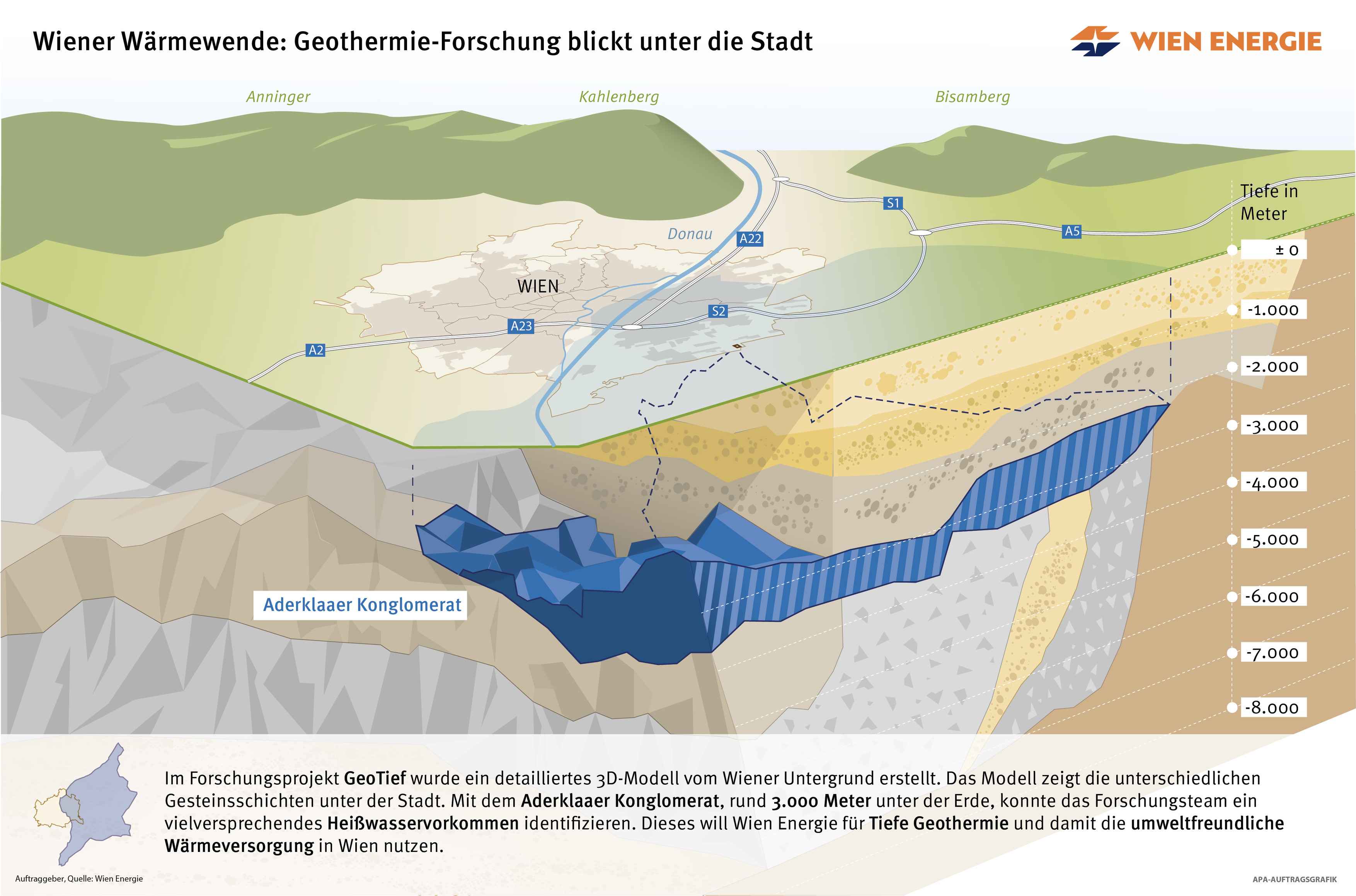Thessaloniki gets ready for its metro launch in November
The underground rapid transit lines have been under construction for almost two decades due to various project delays
 TheMayor.EU logo
TheMayor.EU logo The local energy company plans to test whether the source can be used to power the district heating and to reach sustainability goals
Yesterday, the Vienna municipal company Wien Energie announced the discovery and mapping out of a massive underground hot water deposit under the city. The announcement was the result of a long-running study by the company into sustainable geothermal energy alternatives to the city’s current heating system.
The water deposit is called the Aderklaa and the project has just entered its final phase – exploratory drilling. This process will make use of an old Wien Energie borehole, with the equipment checking rock and chemical composition, and pumping water in and out. After the test is complete, the borehole will be sealed.
The project for mapping the ground under Vienna started back in 2016 and it was done with special equipment by sending vibrations into the ground, similar to ultrasound. Researchers have mapped out the different soil layers and 3,000 metres beneath the surface, they found an abundant water basin.
Experts believe that the water in the Aderklaa deposit should be at a temperature close to 100 degrees Celsius, which would make it a perfect heat source for a sustainable district heating system. However, they also stress that the research needs to be detailed and an eventual exploitation project needs to be well thought out to minimise geological risk.

A visualisation of the layer underneath Vienna,
Source: Wien Energie
The research estimates the water deposit has the potential for 120 megawatts of thermal output, or, as Michael Strebl Chairman of Wien Energie put it – "huge amounts of heat". This is great news for the company, as they aim to provide 125,000 households with warmth from the terrestrial depths by 2030.
According to current climate goals, Vienna needs to cover 56% of the city through district heating by the year 2040 and this deposit offers a relatively easy solution on how to make that climate-neutral. The rest of the city’s heating should be provided through high-efficiency heat pumps.

The underground rapid transit lines have been under construction for almost two decades due to various project delays

Now you can get your wine in Talence by paying directly in Bitcoin

That’s because the state has to spend money on updating the railway infrastructure rather than subsidizing the cost of the popular pass

Rethinking renewable energy sources for the urban landscape

The examples, compiled by Beyond Fossil Fuels, can inform and inspire communities and entrepreneurs that still feel trepidation at the prospect of energy transition

Now you can get your wine in Talence by paying directly in Bitcoin

The 10th European Conference on Sustainable Cities and Towns (ESCT) sets the stage for stronger cooperation between the EU, national and local level to fast track Europe's transition to climate neutrality.

At least, that’s the promise made by the mayor of Paris, Anne Hidalgo

The underground rapid transit lines have been under construction for almost two decades due to various project delays

At least, that’s the promise made by the mayor of Paris, Anne Hidalgo

Hostal de Pinós is located in the geographical centre of the autonomous region

Despite its church-y name, the district has long been known as the hangout spot for the artsy crowds

Urban dwellers across the EU are having a say in making their surroundings friendlier to people and the environment.

Forests in the EU can help green the European construction industry and bolster a continent-wide push for architectural improvements.

Apply by 10 November and do your part for the transformation of European public spaces

An interview with the Mayor of a Polish city that seeks to reinvent itself

An interview with the newly elected ICLEI President and Mayor of Malmö

A conversation with the Mayor of Lisbon about the spirit and dimensions of innovation present in the Portuguese capital














